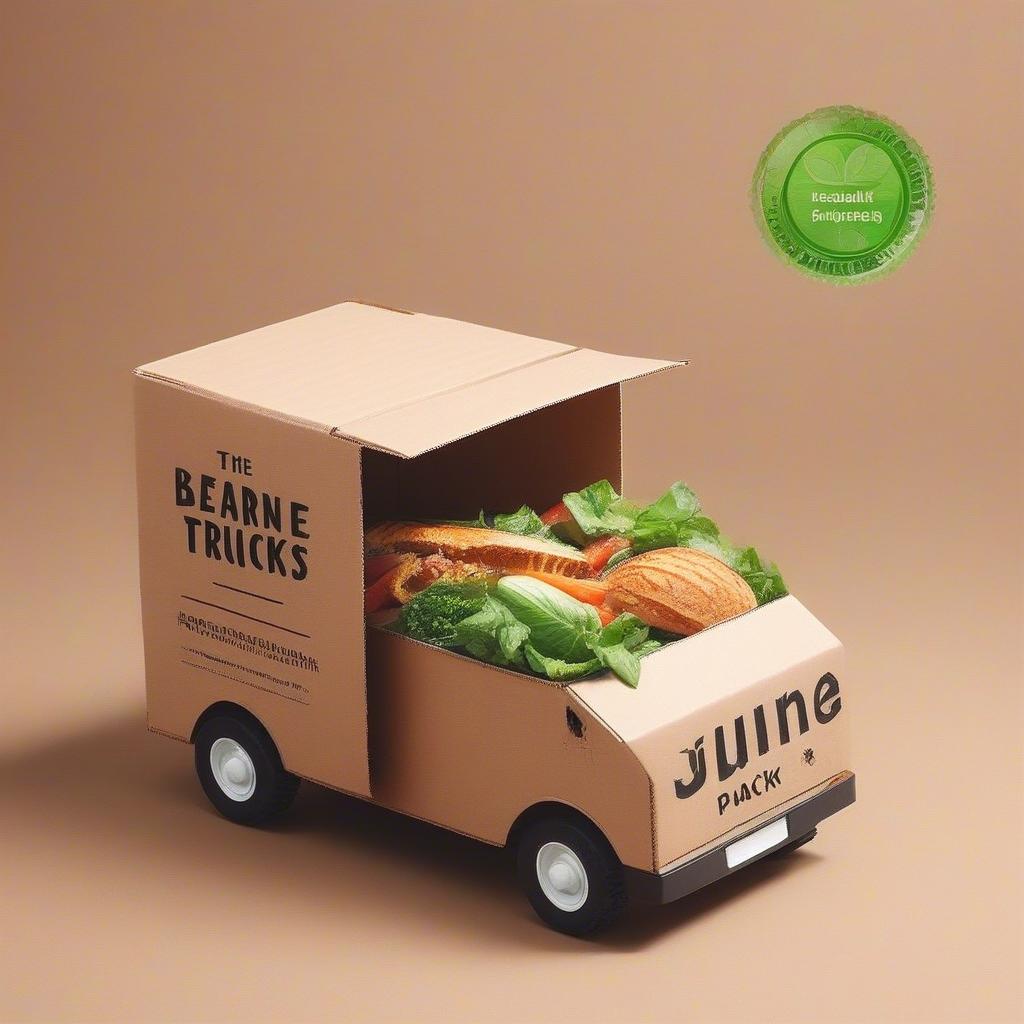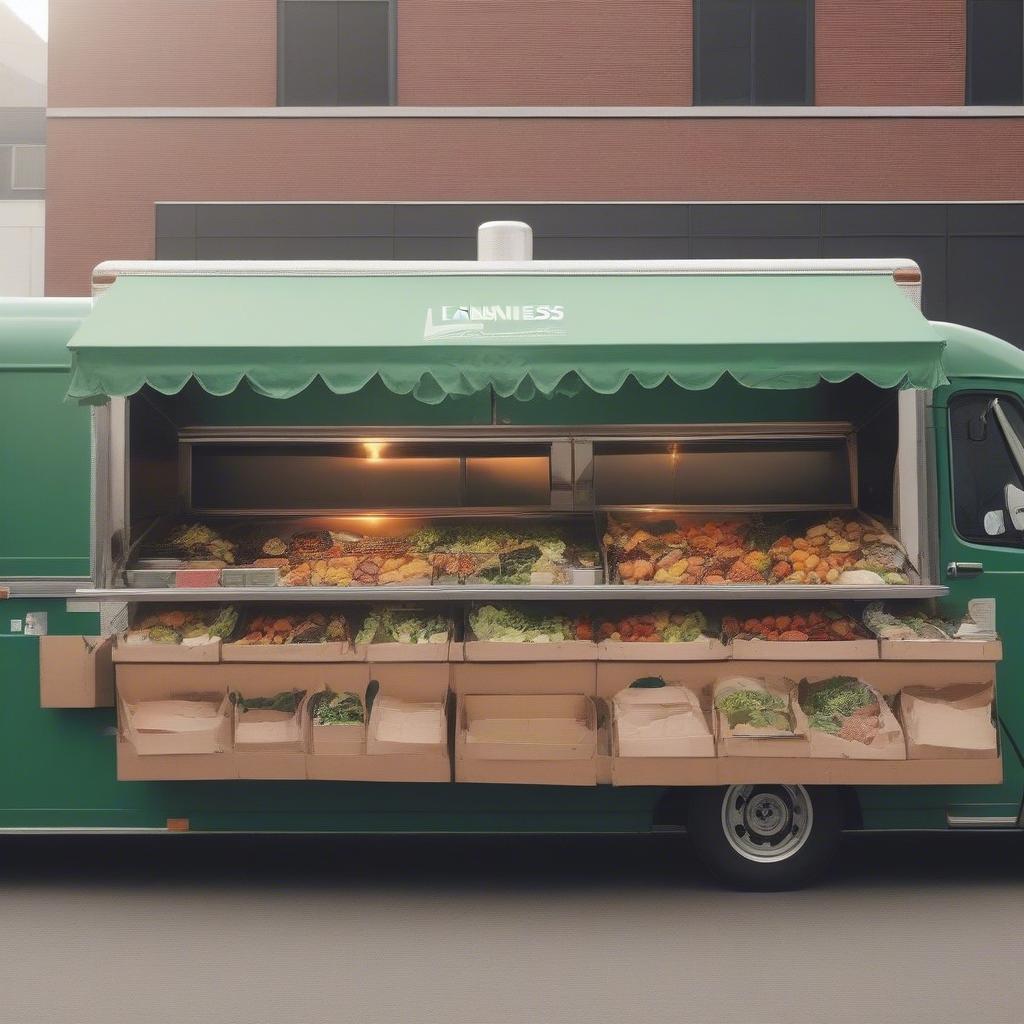
The aroma of sizzling food, the hum of a generator, and the cheerful chatter of customers – the food truck business is a vibrant and exciting venture. But beneath the surface of culinary creativity and entrepreneurial spirit lies a complex web of legal requirements. Navigating this landscape successfully is crucial to avoid hefty fines, shutdowns, and the stress of legal battles. This guide provides a comprehensive overview of how to keep your legal food trucks running smoothly, offering practical compliance tips to avoid penalties and secure long-term success.
Understanding the Regulatory Landscape: Where Do You Start?
Before you even fire up the grill, you need a solid grasp of the legal terrain. This varies wildly depending on your location, so doing thorough research is paramount.
Local and State Regulations: A Tangled Web
Your first step is to understand the specific regulations in your city, county, and state. Don’t assume that what works in one area will work in another. These regulations cover a vast range of areas, including:
- Licensing and Permits: This is your golden ticket to operate legally. You’ll need a business license, a food handler’s permit for yourself and your staff, and often a specific food truck permit.
- Health and Safety Codes: These regulations dictate how you handle food, store ingredients, and maintain cleanliness in your truck. They are designed to ensure the safety of your customers and prevent foodborne illnesses.
- Zoning and Parking Laws: Where you park your food truck is usually strictly regulated. You may need permits to operate in certain areas, and overnight parking might be prohibited in some zones.
- Fire Safety: Food trucks often use propane and open flames, which necessitate strict fire safety regulations, including proper equipment maintenance, fire extinguisher inspections, and proximity requirements to other structures.
- Waste Disposal: Regulations govern how you handle grease, wastewater, and general trash. Improper waste disposal can lead to fines and even temporary closures.
Why is this important? Ignoring local and state regulations can result in hefty fines, temporary suspensions, or even permanent closure. The key is to proactively investigate the specifics of your operating location.
Federal Regulations: Not to be Forgotten
While local and state regulations often take center stage, federal laws also play a role, especially when it comes to food handling and safety. Key federal regulations to be aware of include:
- FDA Food Safety Modernization Act (FSMA): This act focuses on preventing foodborne illness and establishes standards for food production, processing, and transportation.
- Fair Labor Standards Act (FLSA): If you have employees, you must adhere to federal laws regarding minimum wage, overtime pay, and child labor.
- Americans with Disabilities Act (ADA): You must ensure your food truck is accessible to people with disabilities, which can include ramps and appropriate counter heights.
Benefit: Compliance with these regulations protects your business from federal scrutiny and ensures ethical practices.
Research Strategy: Where to Find the Answers
- Contact local city and county governments: Visit their websites or call relevant departments to get the specific requirements.
- Consult with a lawyer: A lawyer specializing in small business or food-related law can offer guidance tailored to your specific needs.
- Network with other food truck owners: Learn from the experiences of other business owners in your area. They often have valuable insights into navigating local regulations.
- Use online resources: Many websites and forums provide information on food truck regulations. Be sure to verify the information with your local authorities.
Practical Tip: Create a checklist of all applicable regulations for each area you plan to operate in. This ensures you stay compliant, no matter where you set up shop.
Key Areas of Legal Compliance: Diving Deeper
Beyond general regulations, certain areas demand extra attention to ensure you are operating within the bounds of the law.
Permits and Licenses: Your Foundation for Operation
Obtaining the proper permits and licenses is the most fundamental step to ensuring your legal food trucks status.
Business License: The Basics
A business license confirms your right to operate a business. Depending on your location, you may need to obtain a license from the city, county, or even the state. Failure to obtain a business license can result in penalties and potential business closure.
Food Handler’s Permit: Protecting Your Customers
This permit demonstrates that you and your staff understand proper food handling techniques. It often requires passing a training course and an exam. Failure to have a food handler’s permit can lead to fines and even temporary closure. It’s crucial for maintaining food safety and preventing foodborne illnesses.
Food Truck Permit: The Specifics
This permit is specific to operating a food truck. It usually includes inspections of your truck, equipment, and food storage. Specifics vary, but it often covers aspects like the number of cooking appliances, wastewater tanks, and food safety practices. Remember this is a recurring permit, often renewed yearly.
Actionable Step: Begin this process early, as it may take time. Be prepared for inspections and follow-up visits.
Health and Safety: Protecting Your Customers and Reputation
Food safety is not just a legal requirement; it’s vital for building trust with your customers. The cost of ignoring health and safety regulations can be catastrophic for your business.
Proper Food Handling: Preventing Illness
- Temperature Control: Store and cook food at proper temperatures to prevent the growth of bacteria. Use food thermometers and log temperatures to document compliance.
- Cross-Contamination Prevention: Separate raw meats from cooked foods to avoid cross-contamination. Use separate cutting boards, knives, and preparation areas for different food types.
- Hand Washing: Implement a rigorous hand-washing policy for yourself and your employees. Provide accessible handwashing stations and soap.
- Safe Food Storage: Store food in appropriate containers at safe temperatures. Regularly check expiration dates and discard spoiled food.
Kitchen and Equipment Maintenance
- Cleanliness: Regularly clean and sanitize all surfaces, equipment, and utensils. Develop a cleaning schedule that is documented and followed daily.
- Equipment Checks: Regularly inspect your equipment to ensure it’s in good working condition. Maintain records of all maintenance and repairs.
- Pest Control: Implement a pest control plan to prevent infestations. Proper storage and disposal are vital in avoiding attraction of pests.
Example: Use a checklist to ensure your truck is inspected each day before service. Keep a log of food temperatures and cleaning activities to document compliance. This approach can help you avoid penalties.
Zoning and Parking: Operating in the Right Place
Where you park your food truck can significantly impact your ability to operate.
Zoning Restrictions: Understanding the Boundaries
- Residential Zones: Many areas prohibit commercial activity in residential zones, meaning you can’t operate your food truck in these locations.
- Commercial Zones: Commercial zones often allow food trucks but may require specific permits and have restrictions on operating hours.
- Proximity to other Businesses: Some areas may have regulations about how close you can park to restaurants, limiting competition.
Parking Regulations: Where Can You Park Legally
- Metered Parking: You may be able to park in metered spaces, but usually, time limits apply. You need to ensure that you are compliant with parking laws.
- Private Property: Always obtain permission to operate on private property. A written agreement with the property owner is vital to protect your business and avoid penalties.
- Special Events: Consider operating in areas where events are being held but ensure you have proper permits and permissions to do so.
- Street Vending: Street vending licenses and regulations need to be examined and fulfilled to ensure legal compliance.
Strategy: Research all areas you plan to operate in and ensure you have the necessary permits. Obtain written permission to park on private property to avoid penalties and legal disputes.
Employee Management: Protecting Your Team
If you have employees, you must comply with labor laws to protect them and yourself.
Wages and Compensation: Paying a Fair Wage
- Minimum Wage: Adhere to federal and state minimum wage laws, which may differ.
- Overtime Pay: Be sure to pay overtime wages for hours worked over 40 in a workweek.
- Payroll Practices: Establish a clear system for tracking hours and making payroll payments to avoid disputes and penalties.
Employee Rights and Safety: Respecting Your Workforce
- Workplace Safety: Provide a safe working environment. Ensure your employees have proper safety training and protective equipment.
- Discrimination and Harassment: Implement policies that prevent discrimination and harassment in the workplace. Create a safe working environment for all.
- Breaks and Rest Periods: Provide employees with mandatory meal breaks and rest periods to comply with labor laws.
Tip: Consult with a legal professional or HR specialist to ensure compliance with all labor laws. Having a clear employee handbook can protect your business and avoid disputes.
Insurance: Protecting Your Business and Assets
Having the proper insurance is a critical part of protecting yourself from potential legal problems.
General Liability Insurance: Covering Accidents
This type of insurance protects you if someone is injured on or near your truck or if you cause property damage.
Product Liability Insurance: Protecting Your Food Products
This insurance covers you if someone gets sick or injured after consuming food from your truck.
Commercial Auto Insurance: Covering Your Truck
This insurance protects you against damage to your food truck and any accidents it may be involved in.
Worker’s Compensation: Protecting Your Employees
This insurance covers medical expenses and lost wages for employees who are injured on the job.
Benefit: Proper insurance can protect your business from financial ruin in case of accidents, injuries, or lawsuits.
Contracts and Agreements: Protecting Your Business
Having clear written contracts with suppliers, vendors, and event organizers is vital for managing legal risks.
Vendor Agreements: Establishing Clear Terms
- Pricing and Payment: Establish the costs and payment terms upfront.
- Delivery and Quality: Specify the quality of ingredients and delivery schedules.
- Dispute Resolution: Include a clause that outlines how disputes will be resolved.
Event Agreements: Ensuring Clear Expectations
- Location and Time: Specify the location and time you will be operating.
- Responsibilities: Clearly define responsibilities, such as providing power and waste disposal.
- Cancellation Terms: Outline what happens if the event is canceled or you are unable to attend.
Actionable Step: Always get contracts in writing. Use a template or consult with a legal professional to ensure that they protect your business.
Practical Strategies for Avoiding Penalties: Proactive Approach
Prevention is always better than cure. By taking a proactive approach, you can significantly reduce your risk of legal issues.
Maintain Accurate Records: Documenting Your Compliance
- Permits and Licenses: Keep copies of all permits and licenses in a safe place. Ensure that all permits are current and valid.
- Food Safety Logs: Maintain records of food temperatures, cleaning activities, and employee training. Create checklists and logbooks for daily operational routines.
- Equipment Maintenance: Keep records of all equipment maintenance and repairs. This will assist in the prevention of future problems.
- Contracts and Agreements: Keep copies of all contracts and agreements in a secure location. Ensure that you review each contract and agreement carefully.
Why is this important? Accurate records serve as proof of compliance and help you respond effectively to inspections or legal inquiries. It reduces your risk of penalties if you are properly documenting your compliance procedures.
Regular Inspections and Self-Audits: Staying Compliant
- Internal Inspections: Regularly inspect your truck to ensure it meets all safety and health requirements. Conduct a thorough self-audit regularly.
- Employee Training: Provide ongoing training to employees on food safety, health codes, and best practices. Implement a system of testing to check on employees’ knowledge.
- Seek Feedback: Be open to feedback from customers, employees, and health inspectors. This can help you identify areas for improvement.
Benefit: Self-audits and regular inspections allow you to identify and rectify issues before they become major problems, helping you avoid penalties.
Stay Updated on Regulations: Proactive Learning
- Subscribe to Legal Newsletters: Stay up-to-date on changes to local and state regulations.
- Attend Industry Events: Attend food truck industry events to learn about best practices and recent changes.
- Consult with Professionals: Regularly consult with a lawyer or accountant who specializes in food truck businesses.
Strategy: Regularly check local, state, and federal regulations to ensure you remain in compliance with changing laws.
Develop a Crisis Management Plan: Be Prepared for the Worst
- Contact Information: Keep a list of emergency contacts, including lawyers, insurance providers, and regulatory agencies. Ensure that this list is updated regularly.
- Contingency Plans: Develop a contingency plan for various scenarios, such as food recalls or accidents. Create a guide of step-by-step plans.
- Communication Strategies: Establish a clear communication plan for dealing with a crisis, both internally and externally. Determine who is responsible for what.
Benefit: Having a well-defined crisis management plan can help you respond effectively to emergencies and reduce potential damage to your business.
Learn Business: Your Partner in Success
Navigating the legal complexities of the food truck industry can be overwhelming. That’s where Learn Business steps in. We understand the unique challenges you face and offer a range of services to support your business.
Tailored Resources: Designed for You
- Compliance Checklists: Download checklists specific to the food truck business to ensure you meet all regulatory requirements in areas of food safety, employee management, and business management.
- Contract Templates: Access pre-built contract templates that cover key areas, including vendor agreements and event agreements.
- Employee Handbooks: Download templates for creating employee handbooks, ensuring that your staff is informed about all policies and guidelines.
- Crisis Management Templates: Use our templates to develop your own comprehensive crisis management plan, making you more prepared for emergencies.
Expert Guidance: Knowledge You Can Trust
- Online Courses and Webinars: Enroll in online courses and webinars to learn from industry experts. These resources can give you a more in-depth understanding of the complexities of legal procedures and policies.
- Personalized Consultations: Receive expert guidance tailored to your specific business needs. We provide a customized approach to every business, regardless of size or type.
- Business Planning Tools: Utilize our tools to create a comprehensive business plan, including legal strategies for success. These tools can help you see every facet of your business and prepare you for potential issues.
Empowering Your Success: Your Partner in Business
Learn Business is more than just a resource; we are your partner in building a successful and legally compliant food truck business. We provide you with the tools and knowledge you need to thrive, ensuring you can focus on what you love most: creating delicious food and connecting with your community. We are committed to the success of your business and will always provide the help and resources to do so.
Conclusion: Drive Your Business Forward Legally
Running a legal food trucks business requires constant vigilance and a commitment to staying compliant with all applicable regulations. By understanding the rules, creating comprehensive strategies, and using resources like Learn Business, you can avoid legal pitfalls and focus on growing your business. Remember, being proactive and informed is the key to long-term success and preventing penalties. This proactive approach will secure your business and provide a sustainable future. Don’t just dream about your food truck business; make it a successful, legal reality.



Leave a Reply